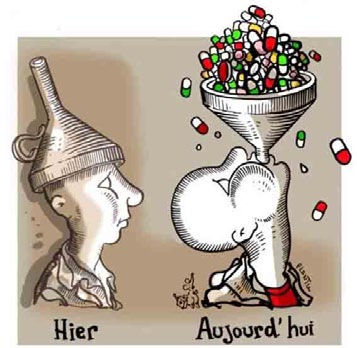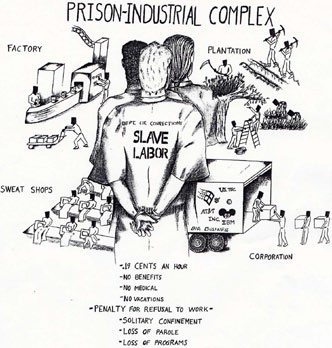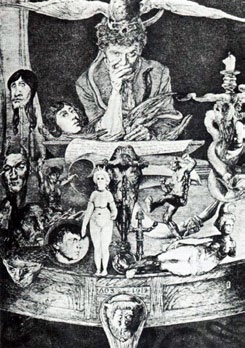DELEUZE, Gilles et GUATTARI, Felix, 1972 : L’Anti-Oedipe: Capitalisme et Schizophrénie, Nouvelle édition augmentée, Éditions de MINUIT.
|
GRIGONE Lasma
DELEUZE, Gilles et GUATTARI, Felix, 1972 : L’Anti-Oedipe: Capitalisme et Schizophrénie, Nouvelle édition augmentée, Éditions de MINUIT. It presents an analysis of human psychology, economics, society, and history, showing how “primitive“, “despotic“, and “capitalist regimes” differ in their organization of production, inscription, and consumption. It describes how capitalism channels all desires through an axiomatic money-based economy, a form of organization that is abstract, rather than local or material. Key Concepts 1 – The Family as the first cell of the fascist society And not only historical fascism, the fascism of Hitler and Mussolini […] but also the fascism in us all, in our heads and in our everyday behavior, the fascism that causes us to love power, to desire the very thing that dominates and exploit us. In the family, the young develop in a perverse relationship, wherein they learn to love the same person that beats and oppresses them. The family therefore constitutes the first cell of the fascist society, as they will carry this love for oppressive figures in their adult life. Deleuze and Guattari’s book, in its analysis of the dynamics at work within a family, consist in the “tracking down of all varieties of fascism, from the enormous ones that surround and crush us to the petty ones that constitute the tyrannical bitterness of our everyday lives“. 2 – Desiring Machines & Social Production Michel Foucault writes in the introduction, “…Anti-Œdipus is an introduction to the nonfascist life.“[3] Where capitalist society trains us to believe that desire equals lack and that the only way to meet our desires is to consume, Anti-Œdipus has a different take: desire does not come from lack, as in the freudian understanding. On the contrary, desire is a productive force. “It is not a theater, but a factory“. The opposition to the notion of lack is one of the main criticisms Deleuze and Guattari make both to Freud and Marxism. Desire is a productive, real force — whereas psychoanalysis limits desire to imaginary fantasies. They oppose an “inhumane molecular sexuality” to “molar” binary sexuality: “making love is not just becoming as one, or even two, but becoming as a hundred thousand.” Deleuze and Guattari’s concept of sexuality is not limited to the connectivity of just male and female gender roles, but by the multi-gendered flows that a “hundred thousand” . 3 – Body without organs In “L’Anti-Oedipe: Capitalisme et Schizophrénie “, Deleuze and Guattari begin to develop their concept of the BwO – body without organs, their term for the changing social body of desire. Since desire can take on as many forms as there are persons to implement it, it must seek new channels and different combinations to realize itself, forming a BwO for every instance. Desire is not limited to the affections of a subject. 4 – Territorialization/Deterritorialization Although (like most Deleuzo-Guattarian terms) deterritorialization has a purposeful variance in meaning throughout their oeuvre, it can be roughly described as a move away from a rigidly imposed hierarchical, arborescent context, which seeks to package things (concepts, objects, etc.) into discrete categorised units with singular coded meanings or identities, towards a zone, where meanings and operations flow freely between said things, resulting in a dynamic, constantly changing set of interconnected entities with fuzzy individual boundaries. Importantly, the concept implies a continuum, not a simple binary – every actual assemblage (a flexible term alluding to the heterogeneous composition of any complex system, individual, social, geological) – is marked by simultaneous movements of territorialization (maintenance) and of deterritorialization (dissipation).
DELEUZE, Gilles et GUATTARI, Felix, 1972 : L’Anti-Oedipe: Capitalisme et Schizophrénie, Nouvelle édition augmentée, Éditions de MINUIT. http://fr.wikipedia.org/wiki/L%27Anti-%C5%92dipe – Français http://fr.wikipedia.org/wiki/L%27Anti-%C5%92dipe – English http://www.madinin-art.net/freud/index.html
|






